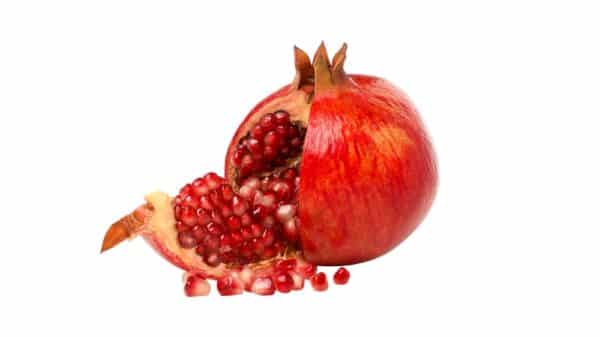These days, the buzz around protein is hard to ignore. If you scroll through your social media feed, you’ll likely come across countless posts from fitness enthusiasts sharing their journeys to meet their daily protein goals, highlighting the myriad benefits of a high-protein diet. But what if you’re missing out yourself? How can you tell if your protein intake is falling short?
Amy Goodson, a registered dietitian and a sports nutrition expert based in the Dallas-Fort Worth area, emphasizes that while many people meet the minimum protein requirements—the Recommended Dietary Allowance (RDA)—a significant portion of the population could derive substantial benefits from increasing their protein intake. She points out that specific groups—like older adults, athletes, individuals recovering from illnesses, and those trying to shed extra pounds—need even more protein to support their unique health goals and lifestyles. “Your protein needs can vary greatly depending on factors like your level of activity, age, weight, and overall health,” she explains. Falling short on protein can impact not just your physical health but also your overall well-being.
Let’s break down the seven signs that might indicate you’re not getting enough protein in your diet each day, so you can better understand your needs.
Protein Helps You Feel Full
Feeling constantly hungry even after a meal? There’s a solid chance you might not be incorporating enough protein into your diet. Research shows that those who eat a diet where protein makes up about 30% of their daily caloric intake tend to feel fuller for longer. This heightened sense of satisfaction can help prevent those pesky mindless snacks and overeating that many of us struggle with during a busy day.
Moreover, protein is critical for building muscle and recovering from workouts. If you’re trying to tone up or maintain your fitness level, a balanced diet rich in high-quality protein can support your strength goals while enhancing your overall health. It’s not just about hitting the gym; what you put on your plate is equally important.
7 Signs You May Not Be Getting Enough Protein
Picture this: you start to notice that your hair is thinning out more than usual. It’s subtle at first, maybe just a few extra strands in the shower drain—but over time, it feels alarming. It turns out that inadequate protein intake can contribute to hair loss. That’s because protein is fundamental for hair health and growth. Without enough in your system, your body may prioritize essential functions over hair production.
This connection extends into various other areas, too. If you’ve been feeling unusually fatigued, struggle with persistent cravings, or notice slower-than-usual recovery after workouts, these can also be signals that your protein levels are lacking.
By focusing on how your body feels, you can make adjustments to meet your protein needs. If you relate to any of these signs, it may be time to reassess your diet. Consult with a healthcare or nutrition professional who can guide you toward making informed decisions tailored to your specific situation. Remember, taking care of yourself isn’t just about the gym; it’s about nourishing your body for everything life throws your way.Here are seven signs that you may not be getting enough protein in your diet. Protein is an essential nutrient that plays a crucial role in our overall health, and its deficiency can manifest in several ways. Let’s explore these signs in detail so you can better understand your body’s needs.
1. Weakness or Fatigue: One of the first indicators of insufficient protein intake is persistent weakness or fatigue. When your body lacks protein, you might notice a decrease in muscle mass. This not only makes simple tasks feel cumbersome but can also drain your energy levels. Many of us lead busy lives, and feeling constantly tired can become a frustrating cycle.
2. Slow Recovery from Exercise: If you find that your muscles take longer to bounce back from workouts, it could be linked to your protein consumption. Protein is made up of amino acids, which are vital for muscle repair and recovery. Without enough protein, your body struggles to mend the tiny tears that occur during exercise, making those post-workout aches linger longer than they should.
3. Thinning Hair or Brittle Nails: Hair and nails are often reflections of our overall health. A deficiency in protein can hinder your body’s ability to produce crucial proteins like keratin, leading to thinning hair, brittle nails, and even dry skin. Each time you see strands of hair in your brush, it may spark concern — understanding that protein might be your ally can shift how you approach your meals.
4. Frequent Illness: Have you noticed yourself getting sick more often? A lack of protein can weaken your immune system’s defenses. Protein is essential for the production of antibodies that fight off infections. So, if you’re feeling under the weather more than usual, consider evaluating your protein intake.
5. Constant Hunger: Do you often find yourself reaching for snacks even after a meal? Protein is known for its satiating qualities, meaning it helps you feel fuller for longer. If your diet is lacking in protein, you might experience a constant cycle of hunger, with cravings that seem insatiable.
6. Slow Wound Healing: The role of protein in healing is critical. Your body requires protein to help form blood clots and to produce collagen, both of which are vital for repairing wounds. If you find that cuts or scrapes take their time to heal, it could be a clue that your protein intake needs attention.
7. Swelling: If you notice unexplained swelling in your hands or feet, this could be a sign of protein deficiency. Proteins in your blood help regulate fluid levels. When you don’t consume enough protein, fluids can build up in your tissues, leading to edema.
It’s important to remember that while these signs can indicate low protein intake, they can also stem from various other health issues. If you find yourself experiencing multiple symptoms, it’s wise to consult a healthcare professional who can provide tailored advice based on your individual health profile.
Registered dietitian nutritionist Lauren Manaker emphasizes the importance of a balanced diet rich in diverse protein sources. Incorporating protein into your meals doesn’t have to be complicated; starting your day with a protein-packed breakfast, like Greek yogurt topped with berries and granola, can set a positive tone for your nutritional intake. This not only fuels your body but creates a satisfying start to your day, making you feel energized and ready to tackle whatever lies ahead.
Understanding these signs and fostering a proactive approach to your diet can empower you to feel your best. Listening to your body and responding with nourishing foods is the first step towards achieving optimal health. Remember, you are not alone in this journey, and small changes can lead to significant improvements.If you’re on a quest to amp up your protein intake, starting your day with a protein-rich breakfast is a fantastic strategy. Goodson suggests a delicious and nutritious lineup: consider Greek yogurt parfaits layered with fresh berries and crunchy whole grain granola. Another option could be a hearty breakfast featuring eggs alongside a bowl of oatmeal. And let’s not forget the simplicity and satisfaction of a protein smoothie—just blend some milk, yogurt, and your favorite fruits for a refreshing start.
When it comes to snacking, think beyond traditional choices. Instead of reaching for chips or sweets, opt for portable, protein-packed options like string cheese, roasted edamame, or even beef jerky. These snacks not only satisfy your cravings but also contribute to your daily protein goals. During meals, aim to fill about a quarter of your plate with lean, high-quality proteins, such as chicken, fish, or turkey. The objective is clear: aim for around 30 grams of protein at meals, and try to hit at least 10 grams at snack time. Making these small adjustments can have a profound impact on your energy levels and overall well-being.
Now, you might be wondering: how much protein is actually optimal for you? A good rule of thumb, according to nutrition expert Manaker, is to target about 0.8 grams of protein for every kilogram of body weight if you have a sedentary lifestyle. To make it easier, divide your weight in pounds by 2.2 to convert to kilograms, and then just multiply by 0.8. But remember, this number isn’t set in stone; your protein needs can shift based on your age, activity level, and health goals.
For example, athletes, pregnant individuals, and anyone working to build muscle may need a boost in protein. If you find yourself second-guessing your own protein requirements, don’t hesitate to consult a registered dietitian. They can provide tailored recommendations to align your nutrition with your specific lifestyle and aspirations.
In this busy world, balancing life and nutrition can feel daunting, but with these straightforward tips, you can pave the way to a healthy, protein-rich diet that supports your lifestyle. Whether you’re a dedicated athlete or someone who just wants to feel a bit more energized throughout the day, each small step you take in this direction counts. Let’s embrace these moments of self-care—because you truly deserve to feel your best, inside and out.
Image Source: Josep Suria / Shutterstock































